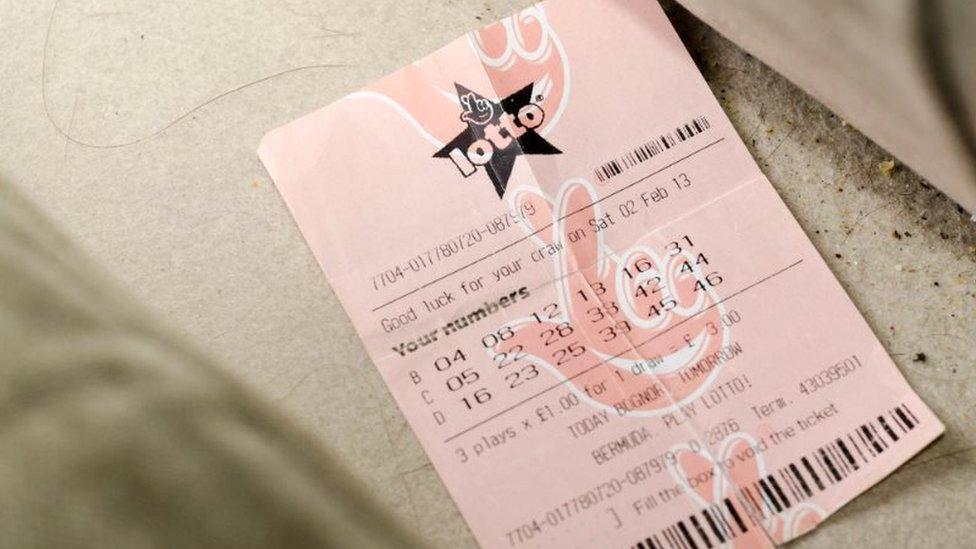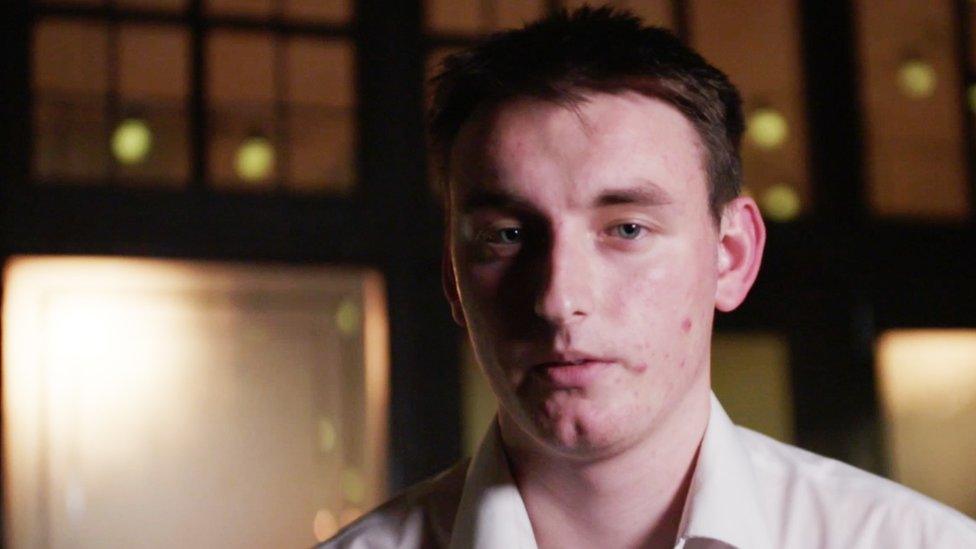Lottery: Good causes 'losing out' to corporate profits
- Published
- comments

National Lottery funding for good causes is under threat while profits for its operator grow, a parliamentary committee has said.
The Commons Public Accounts Committee (PAC) said Camelot had made profits "well in excess" of what was expected by its original licence.
Returns for good causes were only 2% higher in 2016-17 than in 2009-10, while Camelot's profits rose by 122%.
A Camelot spokesman said it was working to "maximise returns to good causes."
Camelot's profits have increased to 1% of sales after tax, rather than the 0.6% anticipated by the Gambling Commission when it agreed the original licence in 2009.
Meanwhile, returns for good causes have fallen from 27p per pound spent in 2009-10 to 22p in 2016-17.
Scratch cards
The PAC said the current licence did not have enough flexibility to protect good causes when consumer behaviour changed.
Camelot said scratch cards and instant win games, which have become more popular, provide a lower return to good causes because they need to offer a higher proportion of proceeds as prizes to encourage consumers to buy them.
The return for good causes from a scratch card is on average 10p per pound spent, much lower than the draw-based game average of 30p.
The PAC criticised the Gambling Commission for not including a break clause in the 2012 renegotiation of Camelot's licence, meaning its terms could not be changed without the company's agreement.
However the committee said falling public's awareness of the Lottery's charity work, and the "detrimental effects of tinkering with the format of the Lottery," were also relevant.
Among other changes brought in in 2015, the number of Lotto balls was increased from 49 to 59. The PAC described the decision as "unpopular".
The resulting fall in sales led to a corresponding decline in returns to good causes.
'Founding principles'
The committee also said it did not believe that Camelot was doing "all it can" to support education and research on gambling awareness,
Committee chairwoman Meg Hillier said: "Raising money for good causes is one of the founding principles of the National Lottery but this objective is under threat."
She added that "it would be a sad and significant loss to many deserving organisations and individuals" if that funding was lost "as a result of inaction now."
Camelot said: "During the third licence period, annual returns to good causes have been, on average, 30% higher than under the previous licence.
"We've already seen some encouraging signs that the initiatives from the strategic review that we carried out last summer are working, and are confident that we have strong plans to get The National Lottery back into growth."
- Published18 June 2015

- Published13 February 2018
